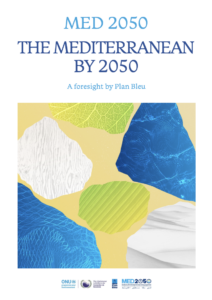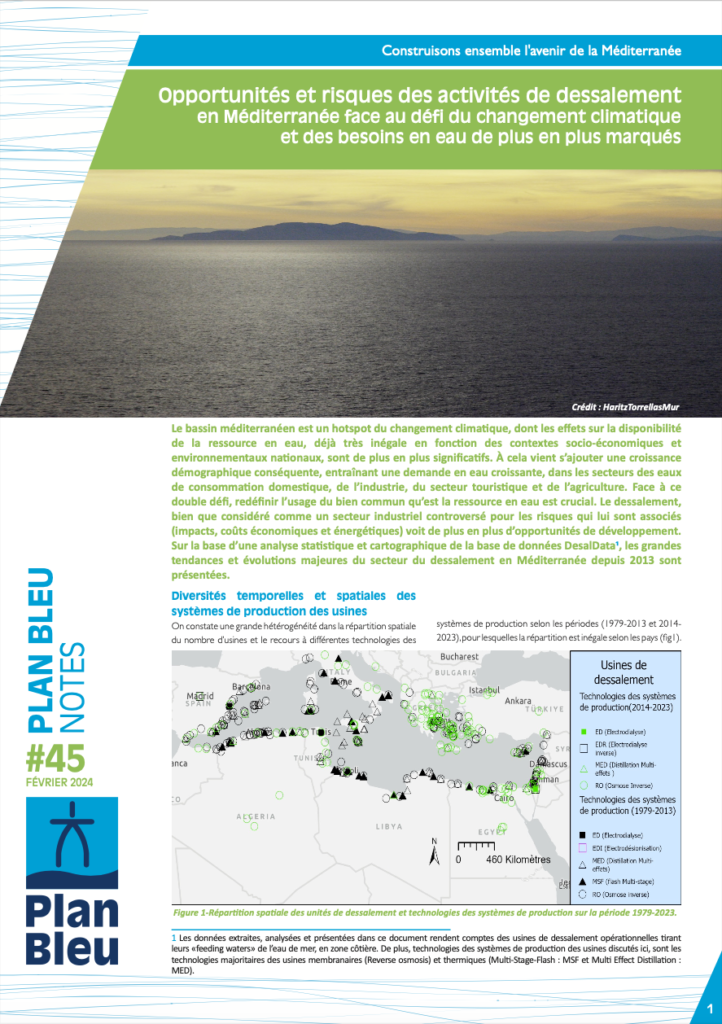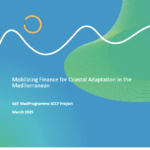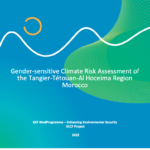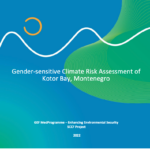The Mediterranean Basin is a hotspot for climate change. The effects of this on the availability of water resources, which are already highly unequal depending on national socio-economic and environmental contexts, are becoming increasingly significant. This is compounded by significant population growth, causing increasing demand for water in the domestic, industrial, tourism and agricultural sectors. This dual challenge makes it crucial to redefine the use of water resources as a common good. Desalination, although considered a controversial industrial sector because of the associated risks (impacts, economic and energy costs), is seeing increasing opportunities for development. We worked with a statistical and mapping analysis of the DesalData database, to present major trends and developments in the Mediterranean desalination sector since 2013.






